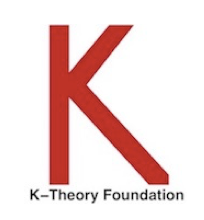Enumerative Geometry Beyond Spaces (24w5258)
Organizers
Balazs Szendroi (University of Vienna)
Jim Bryan (UBC)
Kirsten Wickelgren (Duke University)
Maria Yakerson (Oxford University)
Description
The Banff International Research Station will host the “Enumerative Geometry Beyond Spaces” workshop in Banff from August 25 - 30, 2024.
The subject of enumerative geometry was classically concerned with counting geometric objects on a given geometric space, for example the number of lines on a cubic surface (answer: 27), or the number of rational curves of some fixed degree d on a general quintic threefold (for example, there are 2875 lines). Deep connections with theoretical physics and symplectic geometry have led to enormous progress in the subject over the last three decades, which evolved far past its original goals. Sophisticated refinements of the numerical counts have replaced numerical invariants with invariants that take values in vector spaces, motivic classes, or even categories. Motivated in part by ideas from physics, interest in the individual invariants has given way to the study of partition functions, numerical invariants assembled into generating series of different kinds. Partition functions exhibit symmetries and structure that are not apparent in the individual invariants; for example, they sometimes exhibit modular properties which reflect underlying symmetries.
The classical paradigm for getting enumerative invariants out of a space is to extract numbers (or vector spaces, or motivic classes, or categories) from a moduli space of obects defined on the original space. One of the lessons of the last three decades is that the notions of “space” can be replaced by some more general constructions in this process, such as a category or derived space, and the resulting invariants can also be further refined, e.g. by taking account of the underlying field. This leads to new connections between enumerative geometry, the theory of derived categories and derived and homotopical algebraic geometry. The main aim of our workshop is to explore these emerging links.
We aim to bring together, in a hybrid format, a group of senior experts in the different fields with younger mathematicians, creating an atmosphere that allows for a free interaction and cross-fertilization of ideas.
The travel of some participants from the Global South will be partially supported by the K-theory Foundation.

The Banff International Research Station for Mathematical Innovation and Discovery (BIRS) is a collaborative Canada-US-Mexico venture that provides an environment for creative interaction as well as the exchange of ideas, knowledge, and methods within the Mathematical Sciences, with related disciplines and with industry. The research station is located at The Banff Centre in Alberta and is supported by Canada’s Natural Science and Engineering Research Council (NSERC), the U.S. National Science Foundation (NSF), Alberta’s Advanced Education and Technology, and Mexico’s Consejo Nacional de Ciencia y Tecnología (CONACYT).





